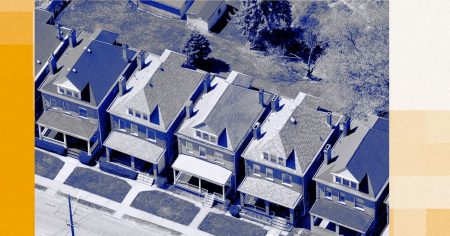Managing Partner, Capital Markets at PIA Residential.
The Millennium Falcon is a starship in the Star Wars universe famously piloted by Han Solo and his Wookiee co-pilot, Chewbacca. The ship is known for its speed, agility, durability and is one of the fastest and most capable ships in the galaxy. It could travel at several times the speed of light, had defensive shields, laser cannons and, more importantly, it had seven beds in three rooms and a bathroom!
Star Wars takes us on a journey to a time and place far removed from our own: a galaxy far, far away, in a time long past. Yet, even amidst the grandeur of interstellar battles and the futuristic technology of the Star Wars universe, the fundamental human need for a space to sleep remains constant. Despite the countless advancements in space travel, lightsabers and “the Force,” people in this universe still require shelter and a comfortable bed to rest their weary heads after a hard day’s work or an epic adventure.
This holds true for us here on Earth as well. In my experience as a leader in the real estate sector, the multifamily asset class has historically been stable, but also more resistant to technological disruptions than others. But, with the rapid advancement of technology and the effects of the pandemic, the real estate landscape is shifting, and I find investors need to be aware of the risks and opportunities that technology can create in real estate.
The pandemic has accelerated the adoption of technology in many aspects of our lives, including how we work, shop and interact with each other. The impact of technology on the real estate sector has been significant, with some asset classes being affected more than others. For example, the retail and office sectors have been disrupted by online shopping and remote work, respectively. On the other hand, I’ve seen apartments and other forms of rental housing that make up the multifamily investment class prove their resilience. (I discuss this in further depth in my article about the effects of technology in real estate.)
As we look to the future, there are several trends that I believe will shape the residential asset class and create opportunities for investors. One trend I’ve noticed is the transfer to tertiary cities, identifiable by their lower cost of living and reduced need for garages in homes due to lower car ownership, allowing them to be converted to home offices. As more individuals choose to work remotely and thus spend more time in their homes, I predict having amenities to use in downtime will gain more importance. Some of these include swimming pools, game rooms, gyms and recreation areas. This trend is especially evident among Millennials and Gen-Z working professionals, who value flexibility and new career opportunities.
The workforce housing sub-sector of the multifamily asset class is particularly attractive to investors, as it has several advantages over other real estate asset classes. Workforce housing assets have defensive characteristics that mitigate risk and tend to remain leased up, generating stable cash flow. During recessionary periods, workforce housing has historically outperformed Class A properties and demographic trends point to further stability and opportunity. In addition, loan terms, leverage and pricing are typically more favorable for multifamily than any other U.S. real estate asset class. The government also provides stability through agency debt providers, which actively work with borrowers to prevent meltdowns and promote rental housing affordability.
While it’s indeed challenging to predict with certainty which technologies will revolutionize real estate or merely create a ripple, the real risk lies in clinging to a rigid mindset. As we’ve recently witnessed with the surge of remote work, real estate is not immune to technological disruption. Hence, the opportunity truly lies for those who shift their perspective and evaluate real estate through a fresh lens.
Few can foresee the myriad ways in which technological advancements might shape our societies, cities and homes. To stay ahead, we must not only be open to change but also surround ourselves with those who grasp the broader implications of technology on society and its subsequent influence on various asset classes. Take, for instance, the future I envision, where self-driving storage pods transform the self-storage industry. Instead of consumers visiting these facilities, an on-demand storage pod could come to their doorstep and later relocate to more economical areas on the city’s fringes. Likewise, with the rise of electric vehicles, the need for traditional gas stations might dwindle. They won’t vanish entirely, but their numbers and purposes could evolve.
I could enumerate many such scenarios, and while some might seem futuristic or challenging to grasp now, they are neither mere speculations nor distant science fiction. They are on the horizon, and they promise to redefine the way we perceive and interact with our built environment.
Everyone seems to be turning their attention to the multifamily asset class in the real estate sector, and investors who understand the risks and opportunities will be well-positioned to maximize returns. Just like in the Star Wars universe, where the Millennium Falcon had seven beds and three rooms for its crew, the need for a place to sleep and shelter remains a fundamental human need, even “a long time ago in a galaxy far, far away…”
May the Force be with you!
Forbes Business Council is the foremost growth and networking organization for business owners and leaders. Do I qualify?
Read the full article here










